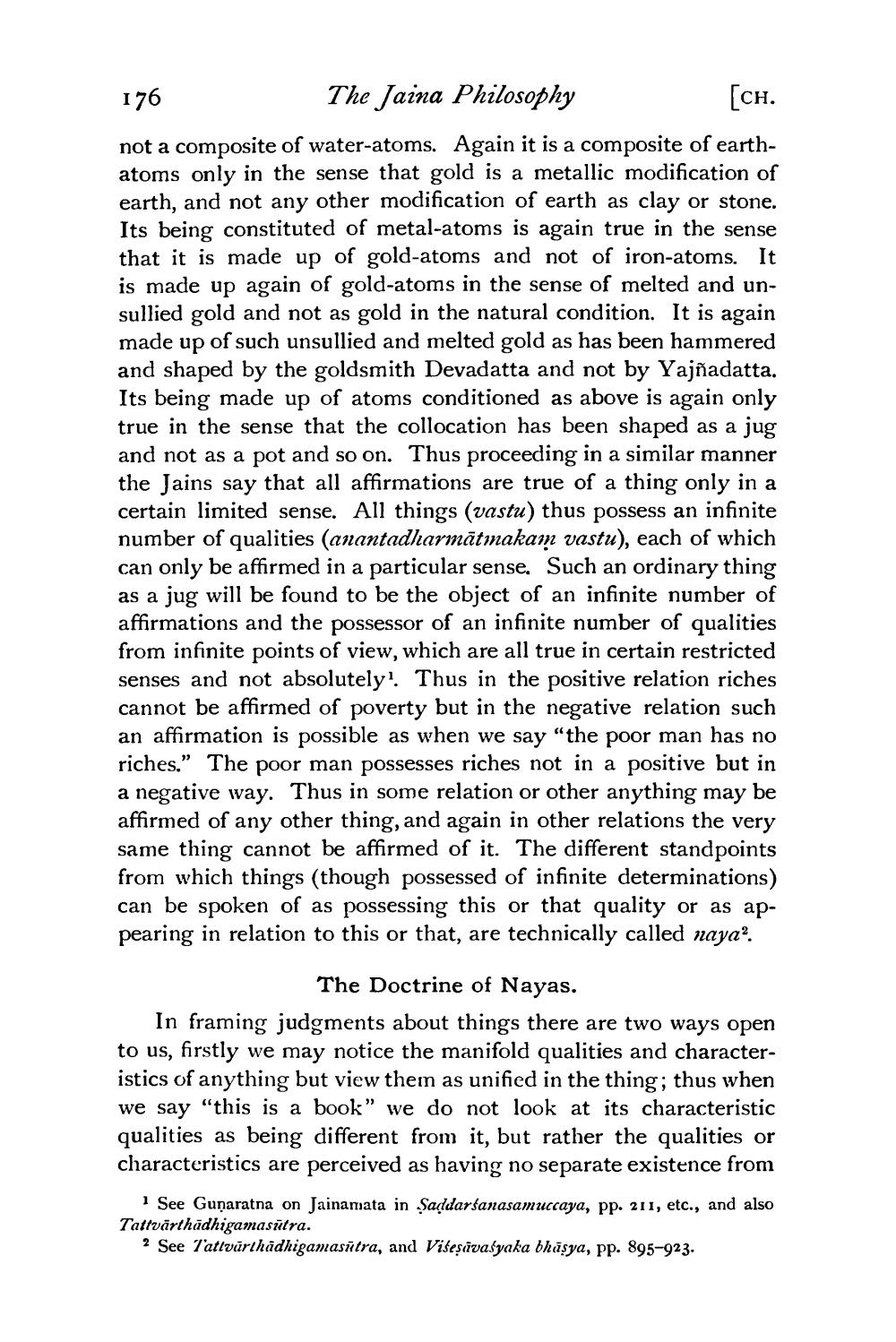________________
176
The Jaina Philosophy
[Ch. not a composite of water-atoms. Again it is a composite of earthatoms only in the sense that gold is a metallic modification of earth, and not any other modification of earth as clay or stone. Its being constituted of metal-atoms is again true in the sense that it is made up of gold-atoms and not of iron-atoms. It is made up again of gold-atoms in the sense of melted and unsullied gold and not as gold in the natural condition. It is again made up of such unsullied and melted gold as has been hammered and shaped by the goldsmith Devadatta and not by Yajñadatta. Its being made up of atoms conditioned as above is again only true in the sense that the collocation has been shaped as a jug and not as a pot and so on. Thus proceeding in a similar manner the Jains say that all affirmations are true of a thing only in a certain limited sense. All things (vastu) thus possess an infinite number of qualities (anantadharmātmakam vastu), each of which can only be affirmed in a particular sense. Such an ordinary thing as a jug will be found to be the object of an infinite number of affirmations and the possessor of an infinite number of qualities from infinite points of view, which are all true in certain restricted senses and not absolutely! Thus in the positive relation riches cannot be affirmed of poverty but in the negative relation such an affirmation is possible as when we say "the poor man has no riches." The poor man possesses riches not in a positive but in a negative way. Thus in some relation or other anything may be affirmed of any other thing, and again in other relations the very same thing cannot be affirmed of it. The different standpoints from which things (though possessed of infinite determinations) can be spoken of as possessing this or that quality or as appearing in relation to this or that, are technically called naya?.
The Doctrine of Nayas. In framing judgments about things there are two ways open to us, firstly we may notice the manifold qualities and characteristics of anything but view them as unified in the thing; thus when we say "this is a book” we do not look at its characteristic qualities as being different from it, but rather the qualities or characteristics are perceived as having no separate existence from
i See Gunaratna on Jainamata in Saddarsanasamuccaya, pp. 211, etc., and also Tattvārthādhigamasutra.
2 See Tativürthädhigamasätra, and Visesivasyaka bhäsya, pp. 895-923.




